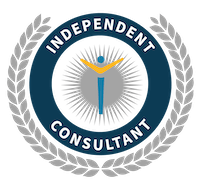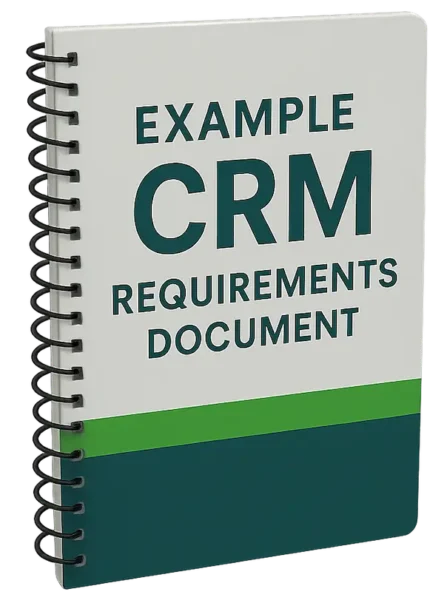 For those new to the world of CRM, one of the most common assumptions is that CRM is a “one size fits all” solution that can be implemented in a business of any size and type.
For those new to the world of CRM, one of the most common assumptions is that CRM is a “one size fits all” solution that can be implemented in a business of any size and type.
The reality is that every CRM system is unique, and some are better suited to particular industry verticals than others.
While CRM vendors and implementation partners have always offered solutions for various industry verticals, that focus is now stronger than ever.
What Is Industry Vertical CRM?
Simply put, industry vertical CRM is CRM software that has been custom-tailored for a particular industry, such as manufacturing, professional services, or retail. These customizations can be anything from a handful of commonly utilized forms or fields, all the way up to a solution purpose-built from the ground up for a particular industry.
In practice, most CRM for industry verticals falls in between those two extremes.
Benefits Of Using a Vertical CRM
The biggest benefit of using CRM that has been developed for a particular industry is that it (in theory) eliminates some of the initial legwork needed to customize the system for an organization.
A good analogy would be to say that buying industry vertical CRM is like an automatic walk to second base. Rather than having to hit a double on your own, the vendor has done that part for you. However, your business will still need an implementation partner to bat in the run. CRM for industry verticals are not “plug and play” solutions, so further development and customization will be needed to meet your business’s unique requirements.
Which CRM Vendors Create Verticals?
Because the demand for industry-specific CRM has only grown over the last decade or so, there is no shortage of vendors offering a wide range of solutions. Vendors like Salesforce and SugarCRM offer customized versions of their platforms for an increasing range of industries. On the other side of the coin, there are dozens of boutique CRM vendors offering solutions aimed specifically at one or two industries only.
The following is a list of some of the most popular CRM vendors and which industry verticals they offer a solution for.
Salesforce
Salesforce offers solutions for the following industry verticals:
- Banking
- Communications
- Consumer Goods
- Government
- Healthcare
- Insurance
- Life Sciences
- Manufacturing
- Media
- Nonprofit
- Retail
- Travel & Hospitality
- Wealth Management
Salesforce has continually added new industry verticals to its solution portfolio at a regular pace, with no signs of slowing down in the near future.
SugarCRM
SugarCRM, as a product, has matured significantly since its inception and now offers solutions for a diverse range of industries, including:
- Manufacturing
- Commercial Banking
- Credit Unions
- Business Services
- Capital Markets
- Insurance
- Financial Services
- Wealth Management
As you can see, just from comparing Salesforce and SugarCRM, it’s common for more than one vendor to offer a solution for a specific industry vertical.
Creatio
Creatio offers solutions for the following industries:
- Financial Services
- Professional Services
- Retail
- Media & Advertising
- Telecommunications
- Manufacturing
- Pharma
- Real Estate
- Public Sector
- Transportation & Logistics
Creatio advertises its software as both CRM and Business Process Automation solutions.
Zoho CRM
Zoho is another vendor whose product has changed and matured significantly since it first debuted. They now offer tailored versions of their CRM for the following industry verticals:
While Zoho was previously known almost solely for being “that free CRM,” it has grown into a viable alternative that is worth considering for businesses of all sizes.
Vertical CRM vs “Horizontal” CRM
One of the challenges for any business evaluating CRM is whether to pick a vertical solution or one that is more “horizontal.”
Vertical CRM is highly customized for a particular industry, and as such, will likely not be useful for tasks and processes outside of that industry. If you buy CRM built specifically for manufacturing, for example, it will not function well if your business suddenly acquires or develops a financial services component.
Horizontal CRM, on the other hand, is the proverbial “jack of all trades” solution. Horizontal CRM is built to handle the core requirements of a business of virtually any type. The drawback, of course, is that it doesn’t offer advanced features and functionality that specific industries often require to get the most value out of the software.
Do You Need An Industry Specific CRM?
As more and more vendors offer CRM for a wider range of industry verticals, buying an industry-specific solution becomes a more compelling argument.
Over the years, we’ve seen countless businesses abandon the idea of CRM simply because the costs to customize a solution out of the box were too prohibitive. The good news is that this is no longer the case for the vast majority of businesses.
To learn more about selecting industry vertical CRM and how CRM Switch can help you move your evaluation process forward, please contact us today.



